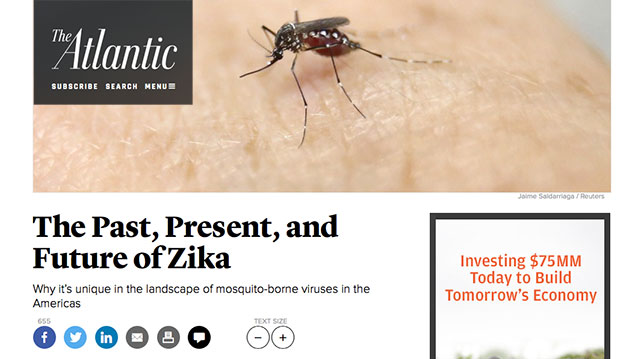EVANSTON, Ill. --- When news outlets began reporting an increase in Zika virus cases two weeks ago, and the World Health Organization declared the virus an international emergency people were concerned about what it meant for pregnant women, unborn children and those traveling to warm, wet climates like Brazil, where the mosquito-borne virus is being transmitted. Northwestern Medicine infectious diseases experts have been weighing in on the news with their take on the virus.
“We’ve never seen this type of birth defect with similar types of viruses,” said Dr. Chad Achenbach, assistant professor of medicine in the Infectious Diseases Division and an investigator at the Center for Global Health at Northwestern University Feinberg School of Medicine in The Atlantic on Feb. 3.
“What you need to ask yourself when you see something like this is, ‘Is there something else that could've explained this increase besides Zika?’” Achenbach said in the piece. “You have to be careful with making those types of associations, but this is such a big increase and there doesn’t seem to be any other particular reason.”
The Journal of the American Medical Association ran a commentary piece on Feb. 9 from Dr. Lee Jampol titled, “Zika Virus Infection and the Eye,” in which the Louis Feinberg Professor of Ophthalmology at Northwestern University Feinberg School of Medicine explained how eye abnormalities in infants with microcephaly may be associated with Zika virus.
And in the local broadcast news circuit, Dr. Michael Angarone, assistant professor of medicine in the Infectious Diseases Division at Feinberg, shared his expertise about the virus and reacted to the news from Dallas regarding the first sexual transmission of the disease. For more, watch his CBS and Fox 32 segments. During a Jan. 29 WGN Radio interview, Dr. Robert Murphy, the director of the Center for Global Health and the John Philip Phair Professor of Infectious Diseases at Feinberg, weighed in on the virus. Listen to his full interview here.


